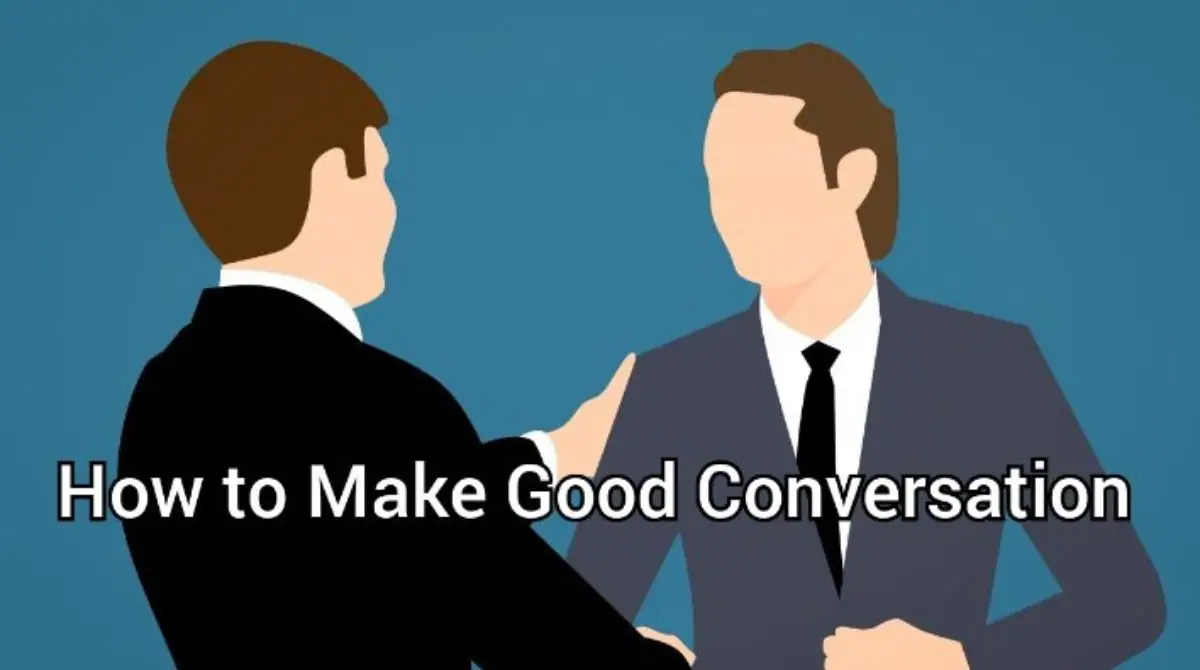Tips How to make good conversation
This section will focus on introducing you to some of the essential tips to master if you are to develop into a good verbal communicator.
■ What is Conversation:
Conversation is a process of sharing or exchanging or conveying information or ideas. Communication skills are becoming increasingly important in our contemporary world as the the nature of work is changing rapidly.
Globally, the nature of the economy is shifting from manufacturing to a service-oriented economy, which means that it is likely that whatever you may be studying now, your profession will most probably involve meeting people, talking to them, assessing their needs and fulfilling their requirements.
Today, and in the near future, an important factor on your road to success will be your ability to communicate. So it is important to master the art of communication skills to make a good conversation.
■ Mode of Conversation:
Conversation is a mean to say something or talk to someone in order to advise, pass on information etc. Communicate in or be able to communicate in a specified language, make a speech to express the views or opinions frankly and publicly.
■ Learning to Talk:
Of course, we all know how to talk. However we always see that some people seem to be able to speak in a way that makes them stand out in a group. He or she is always the one whom people like to meet. They seem to have the skills to impress others through their conversation skill.
Some people seem to be born with good conversation skills. Most of us have to work hard to develop the conversation skills. However, if you feel that you are clumsy in conversation, shy or unable to use words well, do not despair. The art to make a good conversation can be mastered if you work hard, analyse your strengths and weaknesses and practice strategies which can help you to develop into a forceful and effective communicator.
■ Conversation is informal spoken exchange:
Conversations are usually informal discussions between two or more people. Generally speaking, such discussions are not structured on any particular subject and are not subject to any formal rules. However, conversations also have their own unwritten rules and norms. All of us are aware of some of these rules.
For example, the kind of language that we may use in conversations is dependent on or determined by the circumstances or context of the conversation. You will never use the same kind of language that you use among friends if you are talking to the Principal of your college. You will also avoid certain topics of conversation depending on who you are talking to.
These are rules that are not taught to you in school or college; rather these rules that we learn from our social training. Our parents may have taught us some rules; others we learn from experience.
Let us look at some important factors to make a good conversation:
■ Some General Rules to Make a Good Conversation:
● You should be clear in your diction or the way in which you are saying the words. That is, you should speak clearly and sufficiently loudly for the other person to hear you.
● You should look directly at the person you are speaking to, that is you should make eye contact with the person. If you look down, or look away, it often gives the impression that there is something you are hiding or that you are not being entirely honest.
● Unless you know the person very well, you should not stand close to the other person. Most people do not like it when someone is standing too close to them.
● You should know who are you speaking to.
● You should be clear what is the purpose of the conversation.
You should be aware of these factors in any conversation.
■ Example of Good conversation:
For example, if you are asking for information about bus routes, you must make sure that your questions are focused and to the point. This will save time and most important ensure that the information you get is accurate and useful.
Tony: Excuse me. Could you tell me where I could get a bus to take me to the Central Tax Office on Park Avenue?
Stranger: You are standing on the wrong side of the road. You have to go across to the bus stop over there.
Tony: Thank you. Can you tell me what buses I can take?
Stranger: You will get only one direct bus. But that is very irregular. I would advise you to change buses.
Tony: Thank you. Could you tell me the number of the direct bus?
Stranger: Of course. The direct bus is 20C.
Tony: Could you also tell me the numbers of other routes that I can take, please?
Stranger: You can take 24, 75, 230 or can take taxi. These buses will take you towards the Zoo Park. The Tax Office is just two steps after the Zoo Park.
Tony: Thank you very much for your valuable time and patience.
So, you can see that in this exchange both people are direct, courteous and clear. The questions are framed clearly without any ambiguity and the answers too are clear and simple. This is thus a successful conversation.
You May like To Read More:
